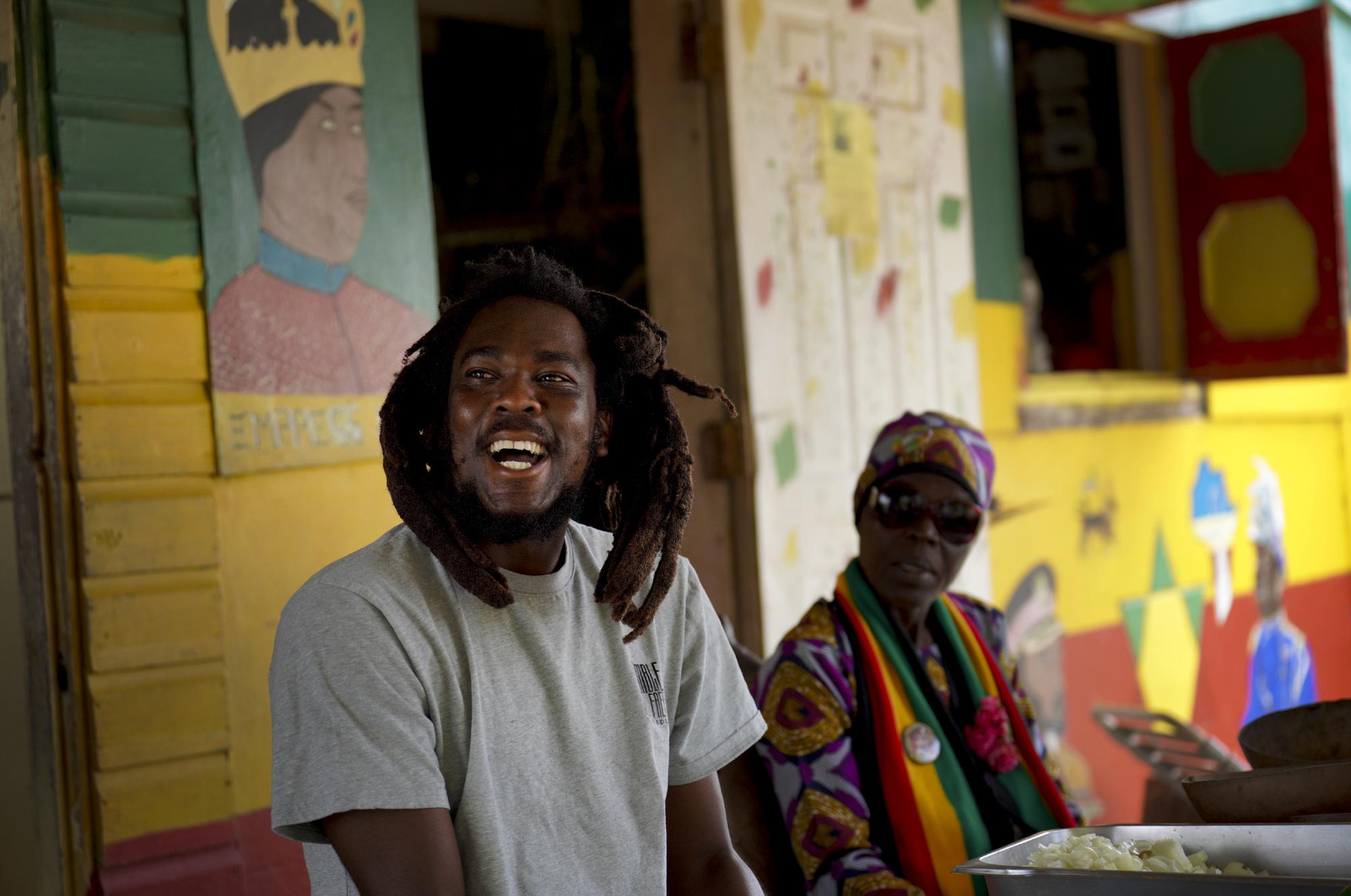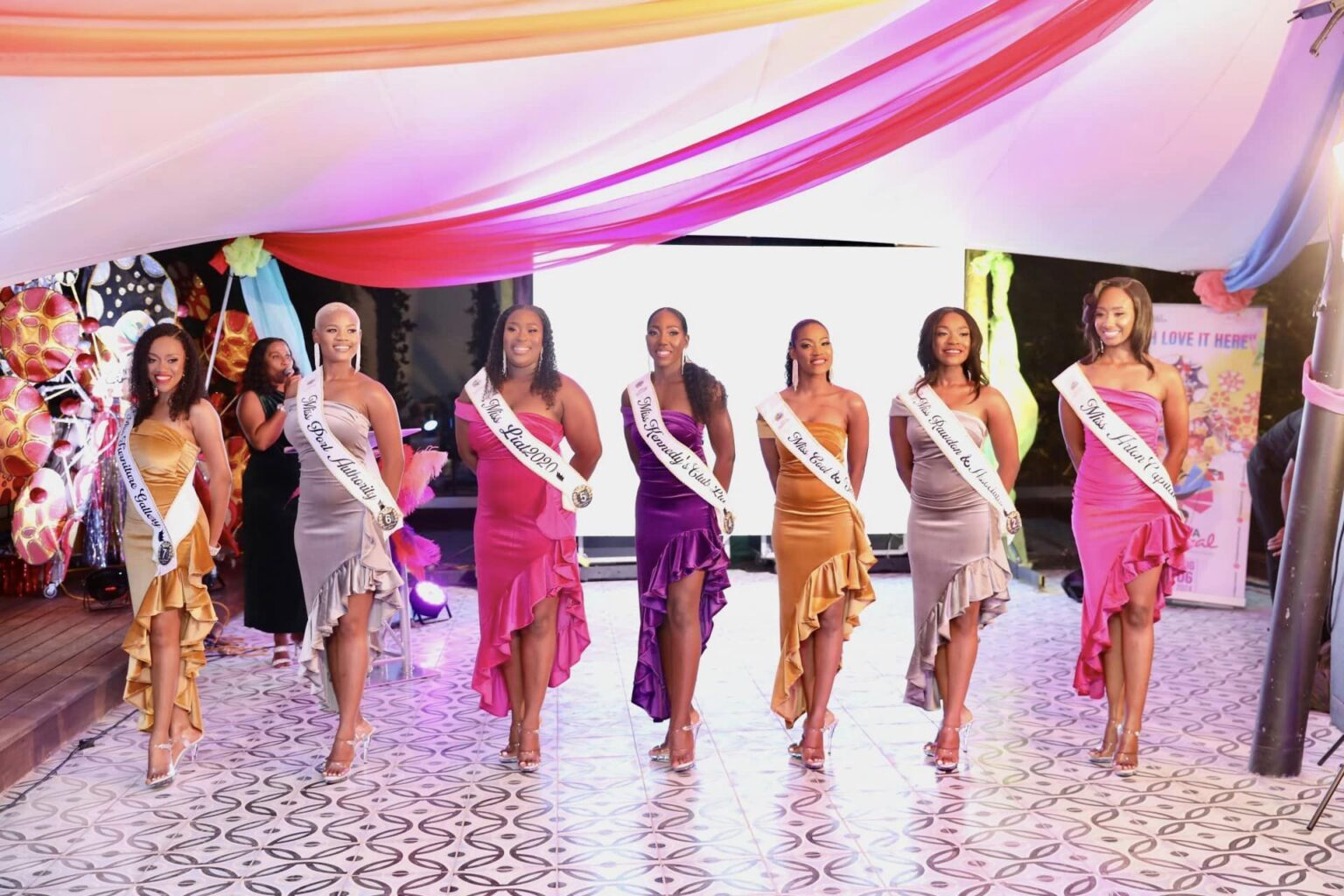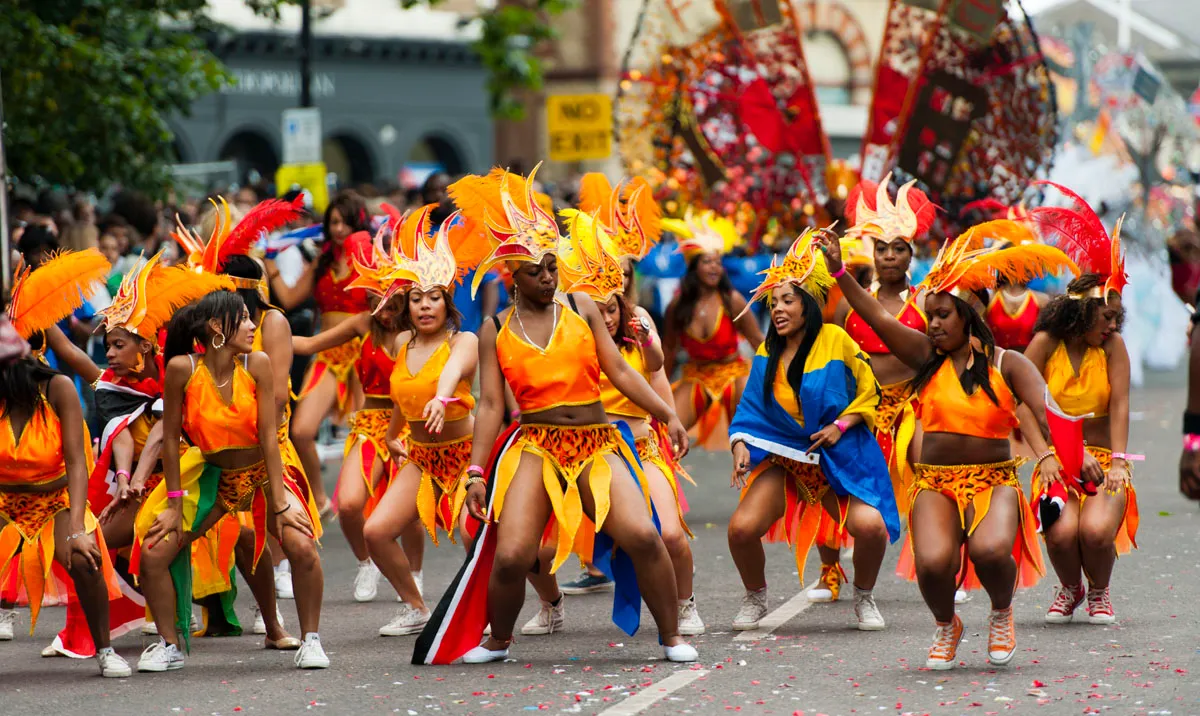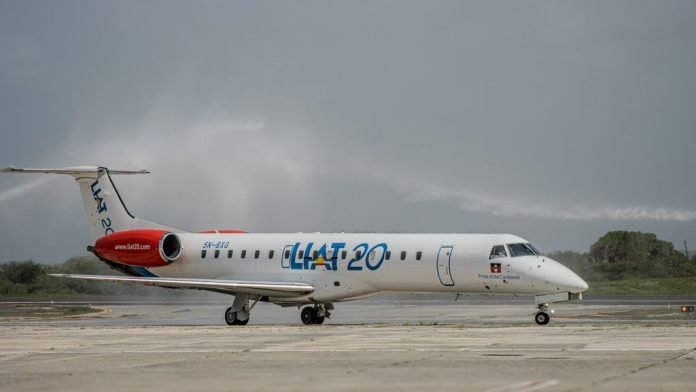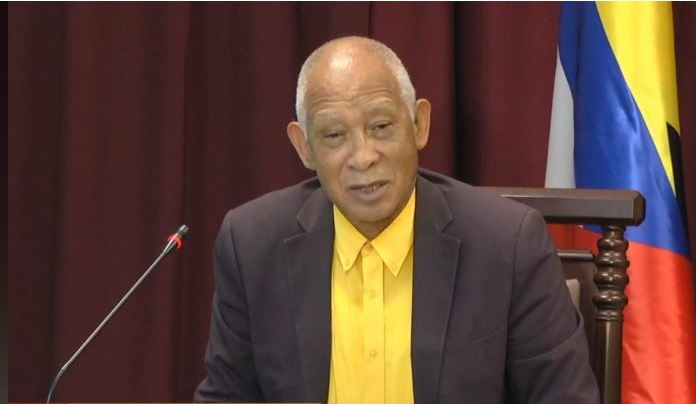JOIN OUR WHATSAPP GROUP FOR NEWS UPDATES: CLICK HERE.
(AP) — On the same ground where their enslaved ancestors were forced to plant sugar cane, Rastafari on this small island nation are now legally growing and ritualistically smoking marijuana.
For Rastafari, the practice brings them closer to the divine. But for decades, many have been jailed and endured racial and religious profiling by law enforcement because of their marijuana use.
The government of Antigua and Barbuda has sought to right that wrong. The twin islands recently became one of the first Caribbean nations to grant Rastafari authorization to grow and smoke their sacramental herb.
“We’re more free now,” said Ras Tashi, a member of the Ras Freeman Foundation for the Unification of Rastafari, who was arrested several times for growing cannabis but refused to plead guilty because to him, “it’s a God-given plant.”
JOIN OUR WHATSAPP GROUP FOR NEWS UPDATES: CLICK HERE. On a recent Sunday, he led chants and praise in the tabernacle on the foundation’s farm located in Liberta’s lush agricultural district. Tashi puffed on a corn husk-wrapped joint while others passed chalice pipes and waved Rastafari flags in the green, gold and red colors of the faith.
“The government gives us our religious rights … we can come and plant any amount of marijuana … and no police can come and take up any plant. We fight for that right — and we get that right,” he said.
JOIN OUR WHATSAPP GROUP FOR NEWS UPDATES: CLICK HERE. Rastafari elsewhere are pushing for similar religious protections. Experts and stakeholders think the Antigua and Barbuda law could give a boost to these efforts worldwide at a time when public opinion and policy are continuing to shift in favor of medical and recreational marijuana use.
Under the same law change, the island government also decriminalized the use of marijuana for the general public. In addition to the expansive religious use granted Rastafari, people outside the faith can grow four cannabis plants each and possess up to 15 grams.
JOIN OUR WHATSAPP GROUP FOR NEWS UPDATES: CLICK HERE.
“We believe that we have to provide a space for everyone at the table, irrespective of their religion,” Prime Minister Gaston Browne told The Associated Press at an interview in his office in the capital city of St. John’s.
“Just as we’ve recognized other faiths, it’s absolutely important for us to also ensure that the Rastafari faith is also acknowledged … to acknowledge their constitutional right to worship and to utilize cannabis as a sacrament.”
“Ganja,” as marijuana is also known, has a long history in the Caribbean region, and its arrival predates the Rastafari faith. Indentured servants from India brought the cannabis plant to Jamaica in the 19th century, and it gained popularity as a medicinal herb.
It began to gain wider acceptance in the 1970s when Rastafari and reggae culture were popularized through music icons Bob Marley and Peter Tosh, two of the faith’s most famous exponents.
Rastafari reject materialist values and often practice a strict oneness with nature, eating only unprocessed foods as part of “Ital” their faith’s vegetarian diet. They also let their hair grow, uncombed, into dreadlocks.
But many of them were long treated as second-class citizens across the Caribbean islands, looked down on for their dreads and sacramental marijuana use.
The prime minister said that growing up poor in Antigua, he witnessed how adult Rastafari were chased by police and locked up, while children were not allowed in schools because of their hair. Browne also recalled how members of the Rastafari generously fed him “Ital” meals when his single mother, who had a mental illness, struggled to raise him and his siblings.
“They embraced me,” he said in his office overlooking palm trees, green hills and the turquoise Caribbean waters. “It speaks to that positive value of brotherly love … I was always socialized to embrace Rastafari.”
After Browne took office in 2014, he appointed Ras Frank-I, the late respected Rastafari leader, ambassador to Ethiopia. In 2018, Browne apologized publicly to the Rastafari community for the oppression and religious persecution they suffered. He also said that Rastafari should be given a stake in the production and economic benefits derived from medicinal marijuana as reparations “for the wrongs inflicted on this significant minority group in our countries.”
His government also helped build a Rastafari-run public school and led efforts to decriminalize marijuana use.
Antigua and Barbuda Prime Minister, Gaston Browne, reads an apology he made to the Rastafari community on behalf of his government for decades of persecution and oppression. The letter was originally delivered in parliament on May 1, 2018. (AP Video: Jessie Wardarski)
Earlier this year, he met with Rastafari groups and granted them licenses from the country’s medical cannabis authority to grow the plant for religious purposes.
“We have adopted many European and non-European religions and we have a Pan-African religion … and instead of embracing it, we have sought to destroy it,” Browne told Rastafari members in March. “I want to encourage you to stand your ground (and) continue to exercise that resilience.”
The changes have faced some opposition from some politicians and Christian leaders in the socially conservative Caribbean region. But Rastafari academics praised Browne’s apology and his government’s actions, saying this tiny nation of about 100,000 people has gone further than regional efforts by larger countries, and could set a global example.
They have become “test cases for the rest of the Caribbean,” he said. “They’ll suggest the viability of this … so other nations can now look to these two nations and say, ‘Ah, they’ve done it.’”
Through a lease from the government, a former sugar cane plantation — a symbol of slavery and British colonial oppression — in Antigua has been transformed into worship grounds, sustainable farmland and the headquarters for Ras Freeman, one of the island’s main Rastafari groups.
“This might be a small win, but it’s something we can definitely celebrate and feel proud of — that lands that were once used to enslave our people, we’re using it to liberate our community,” said Ras Richie, a member of the group. He’s also co-founder of Humble and Free Wadadli.
During that recent Sunday worship service, the breeze fluttered verdant leaves on the marijuana fields surrounding the grey stone remnants of a sugar mill.
Inside the nearby tabernacle, it moved clouds of fragrant marijuana smoke that hung in the air while Ras Freeman members chanted psalms, ululated and banged on Nyabinghi drums.
“The attitude towards it has dramatically changed and it’s more in a positive light,” Ras Kiyode Erasto, Ras Freeman’s chairman said outside the tabernacle, while he grasped branches of dry cannabis.
“We give thanks for the prime minister … his government bravely stand up with courage to decriminalize, and to even give sacramental rights to the Rastafari community.”
Erasto said he suffered bullying and discrimination growing up. At one point, he said, his mother had to cut his dreadlocks so he could be allowed in school.
“It was sad,” he recalled. “I loved my locks as a child.”
Rastafari dreadlocks are an “antenna towards the cosmos” to connect with “the planets, the sun, the moon … it’s the transmission receiver towards messages out there that come to us in a spiritual sense,” said Erasto, who now has long, white-gray, flowing locks.
Throughout his adulthood, he joined marches demanding fair treatment for his community and traveled to other islands for conferences led by the Caribbean Rastafari Organization to advocate for the sacramental right to cannabis.
“We see it as medicine, a food source. We see it as a sacrament. … It aids us into meditation and (to) tap into consciousness,” he said. “To deprive us of our food, of our medicine, we saw that as being unjust. … We had to stand up and fight over the years.”
Erasto was part of an effort by Rastafari from across the Caribbean to help repeal the so-called “Rasta Law” in the British Virgin Islands. The 1980 law ordered immigration authorities to refuse entry to nonresident Rastafari and “hippies” to the territory. It remained on the books for more than 20 years.
“One go through a lot of struggle, especially with the cannabis,” said Shakie Straker, Erasto’s mother and the group’s matriarch, after she sang and praised for hours during Sunday worship. “One pay a lot of money, fines to the court. Man go to jail. Man even lose their life. And this is the struggle, but (now), it’s 100% better.”
To purify the land, the group keeps the red embers of a Nyabinghi fire always burning near their house of worship. They cook together and share meals of coconuts, cassava, carrots and onions produced on their land without pesticides. They keep a strong presence on social media with photos and videos that introduce visitors to their culture and faith. And they have plans to expand, hoping eventually to build a museum, a store to sell their Ital food and a sacramental cannabis dispensary.
“What gives me hope is now that we are reaching out to different parts of the world and realizing the respect that Rastafari has,” Ras Richie said. “That’s the power we have now.”
__
Associated Press religion coverage receives support through the AP’s collaboration with The Conversation US, with funding from Lilly Endowment Inc. The AP is solely responsible for this content.


Make a donation to help support ABN, via PayPal: [email protected]. Follow Antigua Breaking News on Twitter @ABNAntigua and Instgram @AntiguaBreakingNews and on Facebook. Send us a message on WhatsApp at 1-868-704-9864 or email us at [email protected].
JOIN OUR WHATSAPP GROUP FOR NEWS UPDATES: CLICK HERE.
JOIN OUR WHATSAPP GROUP FOR NEWS UPDATES: CLICK HERE.
JOIN OUR WHATSAPP GROUP FOR NEWS UPDATES: CLICK HERE.
JOIN OUR WHATSAPP GROUP FOR NEWS UPDATES: CLICK HERE.
JOIN OUR WHATSAPP GROUP FOR NEWS UPDATES: CLICK HERE.
JOIN OUR WHATSAPP GROUP FOR NEWS UPDATES: CLICK HERE.
JOIN OUR WHATSAPP GROUP FOR NEWS UPDATES: CLICK HERE.
JOIN OUR WHATSAPP GROUP FOR NEWS UPDATES: CLICK HERE.
JOIN OUR WHATSAPP GROUP FOR NEWS UPDATES: CLICK HERE.
JOIN OUR WHATSAPP GROUP FOR NEWS UPDATES: CLICK HERE.
JOIN OUR WHATSAPP GROUP FOR NEWS UPDATES: CLICK HERE.
JOIN OUR WHATSAPP GROUP FOR NEWS UPDATES: CLICK HERE.


